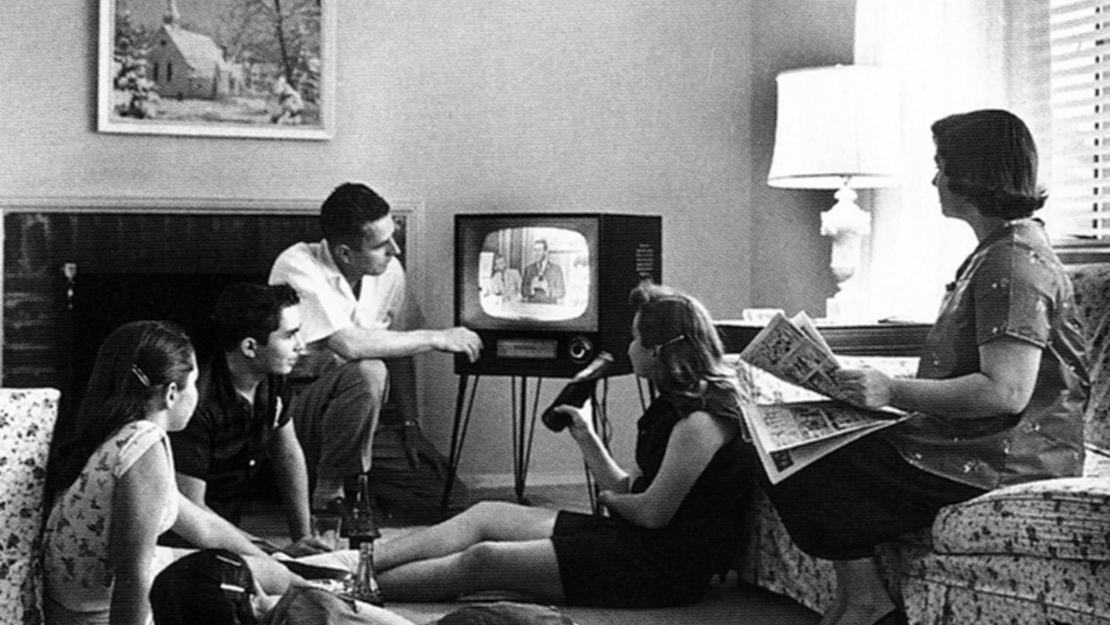It was Sunday evening, March 29, 2020, and I had just watched episode 224 of McLeod’s Daughters, which ran for eight seasons on Australian TV. I had started watching the series many months before the Coronavirus had begun its attack on the world. Over the last few weeks it had been an oasis from the uncertainty and worry we have all been experiencing.
But on Sunday, feeling the sadness common when a good TV series or novel ends, I looked for something else to watch, when a program caught my attention—the Fox News’ special designed to lift the collective American spirit with a combination of inspiring words and healing music. Some performers were well known, others less so. Their enthusiasm was admirable, and their messages encouraging: “We are all in this together,” “We must take heart and support one another,” “We will survive.”
The music was also intended to be uplifting, and it may well have been for millions of younger viewers, but not for me. The lyrics were often unintelligible. In some cases, there were no lyrics at all, just a cacophony of mumbles and shrieks. Twenty or so minutes into the program, I blessed the performers for caring about their fellow citizens and turned off the TV. The silence was welcome.
>>>>>>>>>>>>>>>>>>>>>
Why do many senior citizens (like me) prefer silence to the music of their grandchildren’s generation? Because they remember a time when singing meant using the voice to make pleasing, melodious sounds on a theme that (generally) touched the heart, conveyed a meaningful thought, or both. Today it often means making gravelly, rumbling, or shrill sounds without any consistent and decipherable connection to a feeling or thought.
At the sound of their grandchildren’s music, seniors like me wince and retreat to memories of Frank Sinatra, Johnny Mathis, Perry Como, Dean Martin, Al Martino, Jerry Vale, Nat Cole, the Four Lads, the Lettermen, Gladys Knight, Linda Ronstadt, Steve Lawrence and Eydie Gormé, the Captain and Tennille, and the Fifth Dimension, as well as Luciano Pavarotti and his classical counterparts. For these singers, the human voice was not just an accompaniment to music—it was itself a musical instrument that enhanced the music. Such memories fill seniors not only with nostalgia, but also with puzzlement over what happened to music since that time.
>>>>>>>>>>>>>>>>>>>>>
With millions of others, I’ve been watching the roller coaster coverage on the issue of wearing facemasks for protection against Coronavirus. Here is a sample:
“Wear them by all means.” “Whatever you do, don’t wear them.” “I wouldn’t advise my patients to wear them, but they probably won’t hurt.” “Of course wear them–they have been a major factor in the Czech Republic’s very low rate of infection (see this video: https://youtu.be/HhNo_IOPOtU” “They are of no use whatsoever.” “They are useful if worn by people who could be infected but not others.” “They are good if you use them right.” “They are not good no matter how you use them because they encourage you to touch your face.” “Not at all: they discourage you from touching your face.” “They’re the simplest form of protection, even if not perfect.” “They create false hope.” “We’ve got to test them for a year or so before we allow them to be purchased.” THEN FINALLY, FROM THE CDC, a recommendation in favor of the voluntary use of masks by the public. (Even then, apparently, there was disagreement. According to CNN, a senior CDC official complained that they were pressured to make that announcement by the White House, adding, “We would have tried more to understand about asymptomatic transmission. We would have done more studies if we had more time.”)
And these were the experts! It was enough to make you tear your hair out. But that’s not a good idea for those with thinning hair. (Thankfully, the medical community and Barber’s Union agree on that one.)
Meanwhile, average citizens took a different path. From the beginning, even as the experts were sinking in the quicksand of indecision, non-experts applied common sense and reasoned, “Hey, a mask covers my face and that gives me some protection, which is better than none. Besides, I can’t be sure who around me has the virus without showing symptoms, so I should be careful.” If they couldn’t buy masks, they proceeded to make their own. Good for them!
>>>>>>>>>>>>>>>>>>>>>
What lesson can we take from the experts’ confusion and serial reversal of their views about wearing face masks? That experts in medicine or any other field are susceptible to error. Like the rest of us, they are capable of making snap decisions instead of investigating carefully and considering various views before embracing any one. To say this is not to disparage expertise or malign experts. It is simply to remind ourselves of an indisputable truth that we are inclined to forget.
To put it another way, we should respect the view of experts who, by definition, know more than we do about their subjects. Yet even so, our respect should never be mindless. We should apply Ronald Reagan’s “trust but verify” to all assertions that we hear, including those of authorities. And by authorities I mean medical doctors, engineers, lawyers, professors, elected officials, as well as business and professional leaders. Their academic credentials and résumés offer no guarantee of careful thinking or sound judgment in every situation. Though geniuses have higher “batting” averages than the rest of us, they too can strike out!
In the case of medical authorities, we should also recall that many of the medicines and treatments that are accepted today were ridiculed in the past, and many that were standard practice in the past killed those they intended to cure.
Copyright © 2020 by Vincent Ryan Ruggiero. All rights reserved









The Catholic opposite to “social distancing”? My hats OFF to you! Married Catholics performing the sacramental action of marriage: sexual intercourse.
Quartenined in Love! God will give the Gift of Life to many during this time. Within His Judgement is His Mercy!